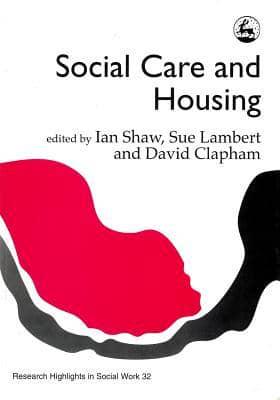Publisher's Synopsis
Drawing out the implications for policy and practice from the latest research in housing and social work, this volume illustrates the lack of communication between practitioners that is hindering service provision, and provides suggestions for improving current practice. The contributors examine the relationship of such factors as youth, gender, race, education, poverty, health, social exclusion and housing developments to the provision of housing for those in need.
Social workers have many clients - including young people leaving care, offenders, people with disabilities or mental health problems, and those at risk of domestic violence, for example - who require intervention on their behalf to meet their housing needs. Social Care and Housing argues that professionals need to be aware of the role of wider social problems, in particular poor housing, in reinforcing the deprivation of the lowest income groups that form the bulk of service users. The contributors suggest that raising the profile of housing and welfare research within the social services, and encouraging practitioners and educators to introduce a broader social context into practice would improve understanding of the relationship between housing and social care. They also examine strategies for formulating coherent responses to client problems, and explore the development of practice at the boundaries of social care and housing.











